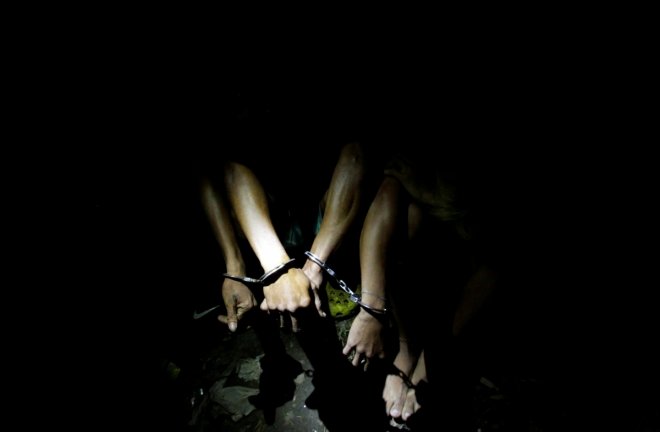
It is a huge campaign victory for the Philippine government against terrorism as police authorities announced the arrest of 42-year-old Rasdy Malawani, the alleged collector and financier of the Maute terrorist group, which was responsible for Marawi City attack that killed more than 1,000 people in the four-month battle.
Police authorities said Malawani was the suspected financier of the group who collected money from business owners in Manila and remitted them to Madie Maute, the brother of Mautes notorious leaders: Omar and Abdullah Maute.
A .45 caliber pistol, a rocket-propelled grenade and bank receipts were also confiscated from Malawani at the time of his arrest last Thursday. The announcement came days after police authorities confirmed the death of Malaysian national Mahmun Ahmad, the Deputy leader of Southeast Asia ISIS emir Isnilon Hapilon.
Ahmad was responsible for receiving at least US$1 million from foreign supporters to mobilize more than 700 terrorists to raid Marawi.
Malawani was also reported to be the collector of Farhana Maute - the matriarch of the Maute clan. Farhana was arrested by security forces in Lanao del Sur last June and is now detained at Bicutan Jail in the Northern Philippines.
Thus, with the arrest of Malawani and the death of Maute-ISIS leader Omar Maute and Abu Sayyaf leader Isnilon Hapilon, many are still in doubt if it will be the end of terrorism in the Philippines when President Rodrigo Duterte announced that terror threats would remain as intelligence sources reported that ISIS sympathizers will take vengeance as a result of the death of over 900 terrorists in the Marawi five-month battle.
Moreover, the Maute is not the only terror threat that is haunting the Philippines. Duterte said that he will now prepare his security forces to run after the more seasoned terror group namely, the Abu Sayyaf Group operating in Basilan and Sulu, and the Bangsamoro Islamic Freedom Fighters (BIFF) operating in Central Mindanao.
Both terror groups have pledged allegiance to the ISIS headquarters in Syria. The biggest challenge of the Philippine government now is, these remaining terror groups have the support of local communities some of them refusing to cooperate with the government.
Duterte is also seeking the help of two Islamic revolutionary organizations to also run after the remaining terror groups. The leader has been tapping the services of Nur Misuari, the founding chairperson of the Moro National Liberation Front (MNLF) who was instrumental in facilitating the release of foreign nationals abducted by the Abu Sayyaf.
The Philippine government also has received 5,000 AK -47 rifles from Russia, 3,000 assorted rifles from China and modern reconnaissance aircraft from the US. Australia also earlier offered P-2 Orion surveillance aircrafts to survey movements of terrorist strongholds in Marawi.
While the Duterte government has been exerting effort to suppress violent terrorism in the Philippines, it looks like the growing terror problem is no longer a concern of the military but it needs a collaborative governance from different sectors and neighbouring nations to address this ASEAN threat.
Given the terror capability of the local terror group, the resources of the Philippine government today might find it a gigantic task to prevent future terror attacks as Duterte also warned that a terror retaliatory attack similar to Marawi can happen anytime.









